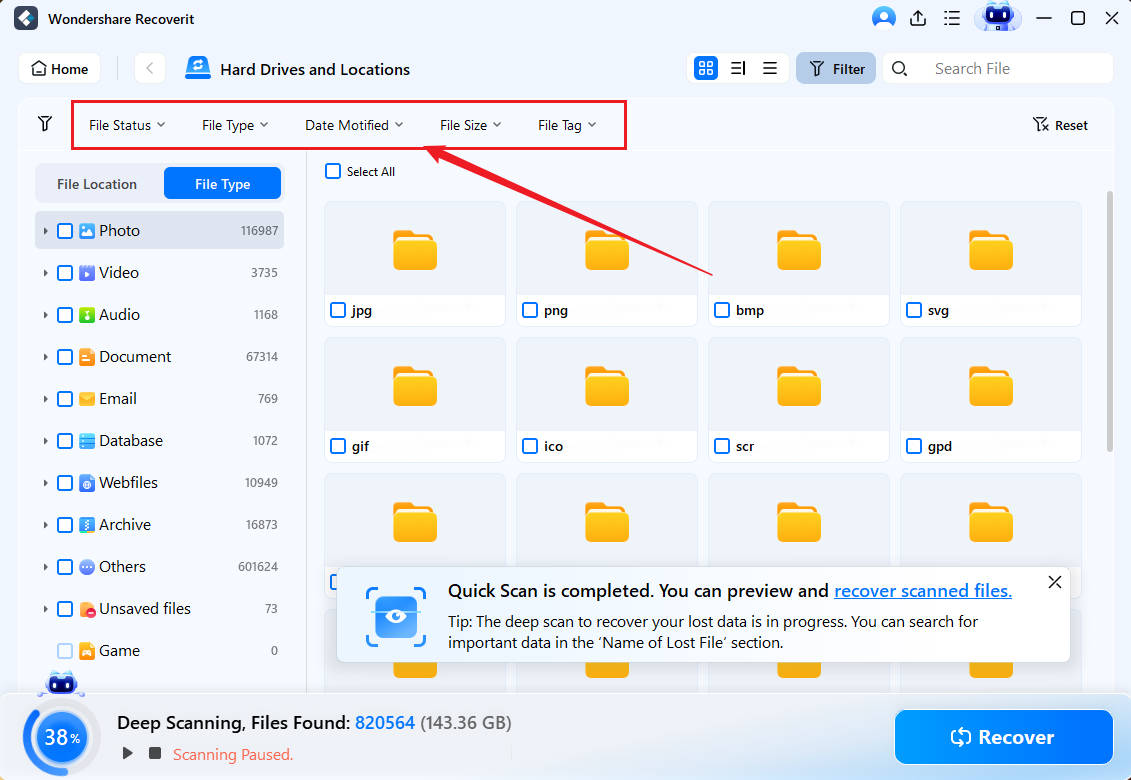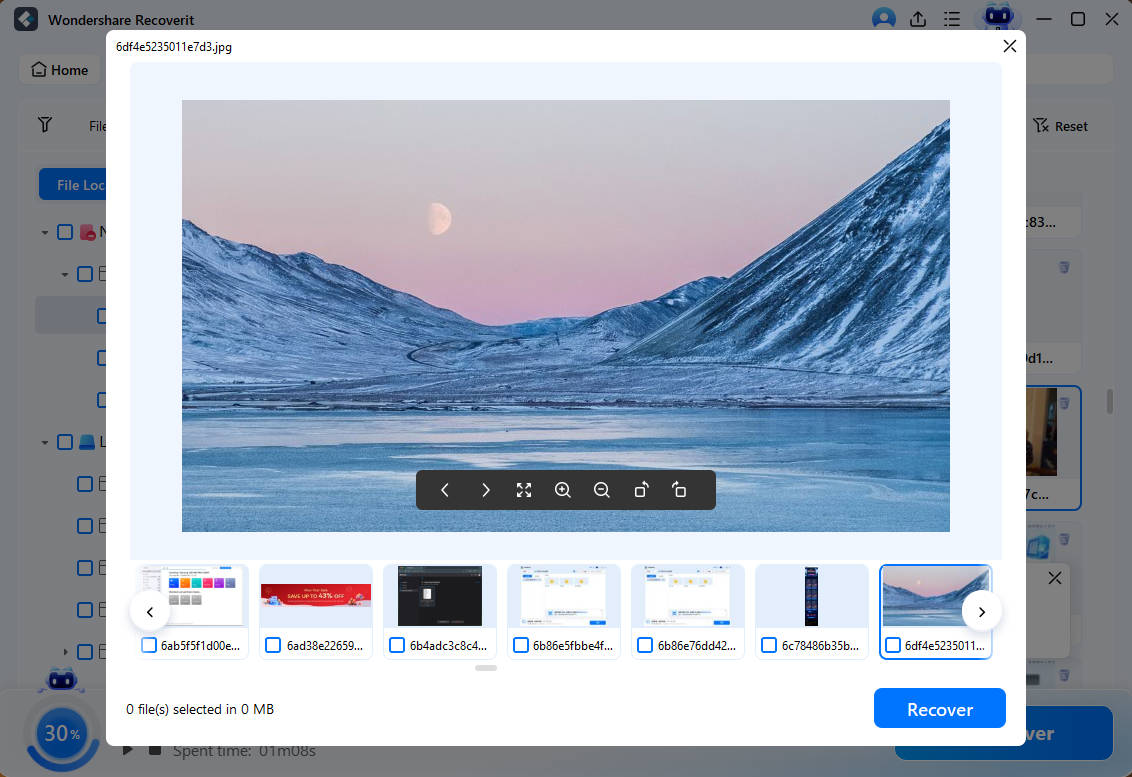Thinking about upgrading to Windows 11 but wondering if your PC can handle it? Not all PCs are capable of running Windows 11, so it's crucial to do a Windows 11 compatibility check first. This guide will help you understand the minimum requirements for Windows 11 and show you how to check if your PC meets them.
Windows 11 is Microsoft's latest operating system, featuring new functionalities and a fresh look. However, it comes with higher system requirements compared to previous versions. To enjoy Windows 11, your PC must meet these minimum requirements.
In this article, you'll learn how to perform a Windows 11 compatibility check. We'll explore the tools you can use and provide tips to ensure your PC is ready for the upgrade.
Try Wondershare Recoverit to Perform Data Recovery

In this article
Is it Possible to Check If My PC Can Run Windows 11?
Absolutely, you can check Windows 11 compatibility. There are several tools designed to assist you with this process. These tools will evaluate your PC's specifications against the minimum requirements for Windows 11.
By using these tools, you can easily check Windows 11 compatibility. They will tell you if your PC meets the Windows 11 spec requirements.
What Is the Minimum Requirements for Windows 11?
Here are the Windows 11 minimum requirements:
- Processor: A compatible 64-bit processor with at least 2 cores and a speed of 1 GHz or faster.
- RAM: 4 GB or more.
- Storage: 64 GB or more.
- System Firmware: UEFI, Secure Boot capable.
- TPM: Version 2.0.
- Graphics Card: Must be compatible with DirectX 12 and have a WDDM 2.0 driver.
- Display: 720p, greater than 9” diagonal.
- Internet Connection: Required to perform updates and download new features.
How to Check Windows 11 Compatibility
Before upgrading to Windows 11, it's crucial to check if your PC meets the requirements. Knowing your system compatibility helps avoid future issues.
You can utilize specific tools created for this task. Here are two effective methods to perform a Windows 11 compatibility check.
Method 1: Check Compatibility With PC Health Checkup Tool
The PC Health Checkup Tool is a reliable way to determine if your PC meets the minimum requirements for Windows 11. This official Windows 11 requirements checker tool from Microsoft provides a straightforward process to check compatibility, making it easy to find out if your system is ready for an upgrade.
Here's how to use it effectively.
- Download the PC Health Checkup Tool from Microsoft's website.

- Install and launch the tool. It will assess your PC and indicate whether it meets the Windows 11 requirements.
Method 2: Use WhyNotWin11 Tool
The WhyNotWin11 Tool is another excellent option to check Windows 11 compatibility. This third-party tool provides a detailed analysis of your PC's specifications and tells you if it meets the Windows 11 spec requirements. It's a great alternative if you're looking for a more in-depth compatibility check. Here's how you can use it to assess your PC.
- Download the WhyNotWin11 Tool from a trusted source.

- Run the tool. It will provide a detailed report on your PC's compatibility with Windows 11.
Stuck with "This PC Can’t Run Windows 11" Error? Try These Fixes

Occasionally, while checking for Windows 11 compatibility, you might come across the annoying "This PC Can't Run Windows 11" error. This error can halt your upgrade plans.
But don't worry—there are solutions. Here are some fixes that can help you resolve this issue and get your PC ready for Windows 11.
Fix 1: Enable TPM from Startup
If you see the "This PC Can't Run Windows 11" error, one important step is to enable TPM in your BIOS or UEFI settings. TPM, which stands for Trusted Platform Module, is required for Windows 11 and is sometimes turned off by default. By turning it on in the startup settings, you can meet one of the essential Windows 11 requirements.
- Restart your PC and enter BIOS/UEFI settings. Locate the TPM option. Enable it.

- Save changes and restart.
Fix 2: Enable TPM from Settings
Another approach to resolve the compatibility issue is enabling TPM from the Windows Start Menu. This method allows you to access and configure TPM without restarting your PC. By doing this, you ensure that your system complies with the Windows 11 requirements, making the upgrade process smoother.
- Press Windows + R and type tpm.msc.

- Check the status and enable TPM.
Fix 3: Enable Secure Boot in BIOS
Secure Boot is a security standard developed to ensure that your PC boots using only software trusted by the PC manufacturer. Enabling Secure Boot in the BIOS can help resolve the "This PC Can't Run Windows 11" error by aligning your system with the security requirements of Windows 11. This adjustment can significantly improve your PC's compatibility with the new OS.
- Restart your PC and enter BIOS/UEFI settings. Enable Secure Boot.

- Save changes and restart.
Accidentally Deleted Files on Windows? Use Recoverit
Sometimes, while checking compatibility or upgrading your system to Windows 11, you might accidentally lose some important files. This can happen due to various reasons like unexpected shutdowns or accidental deletions. Losing such files can be frustrating, especially if they are critical documents or personal photos. It's crucial to have a reliable tool to recover these lost files and prevent permanent data loss.
Recoverit is a powerful tool that can assist you in recovering lost files. It is designed to handle various data loss scenarios effectively. Whether you have lost files due to system upgrades, accidental deletion, or other reasons, Recoverit can help retrieve your data.
Using this tool is straightforward and user-friendly, ensuring you can recover your files without any hassle.
Here are some reasons to choose Recoverit for your data recovery needs:
- User-Friendly Interface: Recoverit is easy to navigate, even for beginners.
- High Recovery Rate: It boasts a 99.5% high success rate in retrieving lost data.
- Wide File Support: Recoverit supports a variety of file types and formats.
- Multiple Scenarios: It can recover data lost due to deletion, formatting, system crashes, and more.
- Preview Function: Allows you to preview files before recovery, ensuring you retrieve the correct files.
- Safe and Secure: Recoverit ensures your data remains safe and secure throughout the recovery process.
- Comprehensive Scan: Offers both quick and deep scans to locate lost files effectively.
- Cross-Platform: Available for both Windows and Mac operating systems.
- Customer Support: Provides excellent customer support to assist with any issues.
Recoverit is a reliable and efficient tool to recover your lost data, making it a top choice for many users.
Steps:
- Download and install Recoverit on your PC. Open the program and select the location where files were deleted. Click '''Start' to begin the scan.

- Wait for the scanning process.

- Preview and recover the files you need.

Tips to Check Windows 11 Spec Requirements
Ensuring that your PC meets the Windows 11 spec requirements is essential for a smooth upgrade. Here are some tips to help you check and confirm your system's compatibility:
- Update BIOS: Make sure your PC's BIOS is up-to-date. Manufacturers often release updates that improve compatibility with new operating systems.
- Use Compatibility Tools: Utilize both the PC Health Checkup Tool and WhyNotWin11 Tool for a comprehensive check. These tools provide detailed insights into your PC's specs and compatibility.
- Check Device Manager: Ensure all drivers are up-to-date. Outdated drivers can cause compatibility issues, so it's important to keep them current.
- Review System Settings: Verify that features like TPM 2.0 and Secure Boot are enabled in your system settings. These are crucial for meeting Windows 11 requirements.
- Consult Manufacturer: If you're unsure about specific components or settings, check your PC manufacturer's website or support resources for detailed instructions and updates.
By following these tips, you can ensure your PC meets the Windows 11 spec requirements and enjoy a seamless upgrade experience.
Conclusion
Checking Windows 11 compatibility is essential before upgrading. Ensuring your PC meets the requirements can prevent issues down the road. You can use tools like the PC Health Checkup Tool or WhyNotWin11 to check if your PC can run Windows 11. These tools are straightforward and provide a clear picture of your system's compatibility. If you encounter any issues, try the fixes provided in the guide, such as enabling TPM or Secure Boot. These adjustments can resolve common errors that prevent the upgrade.
In case you accidentally delete any files during the process, use Recoverit to retrieve them. Recoverit is a powerful tool that can help recover lost or deleted data efficiently. By ensuring your PC meets the minimum requirements for Windows 11, you can enjoy all the new features and improvements it offers. Remember to update your BIOS and drivers regularly to maintain optimal performance. This will help ensure a smooth and seamless upgrade experience, allowing you to fully benefit from the new operating system.
FAQs
-
Q: What are the minimum system requirements for Windows 11?
The minimum requirements for Windows 11 include a 1 GHz processor with at least 2 cores, 4 GB of RAM, and 64 GB of storage. You also need a DirectX 12 compatible graphics card, a display with at least 720p resolution, and TPM version 2.0. Additionally, your system firmware must support UEFI and Secure Boot. -
Q: How do I check if my PC meets the Windows 11 requirements?
You can check if your PC meets the Windows 11 requirements by using the PC Health Checkup Tool from Microsoft. Download and run the tool to see if your system is compatible. Another option is the WhyNotWin11 Tool, which provides detailed compatibility analysis. -
Q: What should I do if my PC says it can’t run Windows 11?
If your PC says it can’t run Windows 11, try enabling TPM in the BIOS or UEFI settings. Ensure Secure Boot is also enabled. If you still face issues, updating your BIOS might help. These steps can resolve common compatibility problems and help your PC meet the requirements for Windows 11.




 ChatGPT
ChatGPT
 Perplexity
Perplexity
 Google AI Mode
Google AI Mode
 Grok
Grok






















